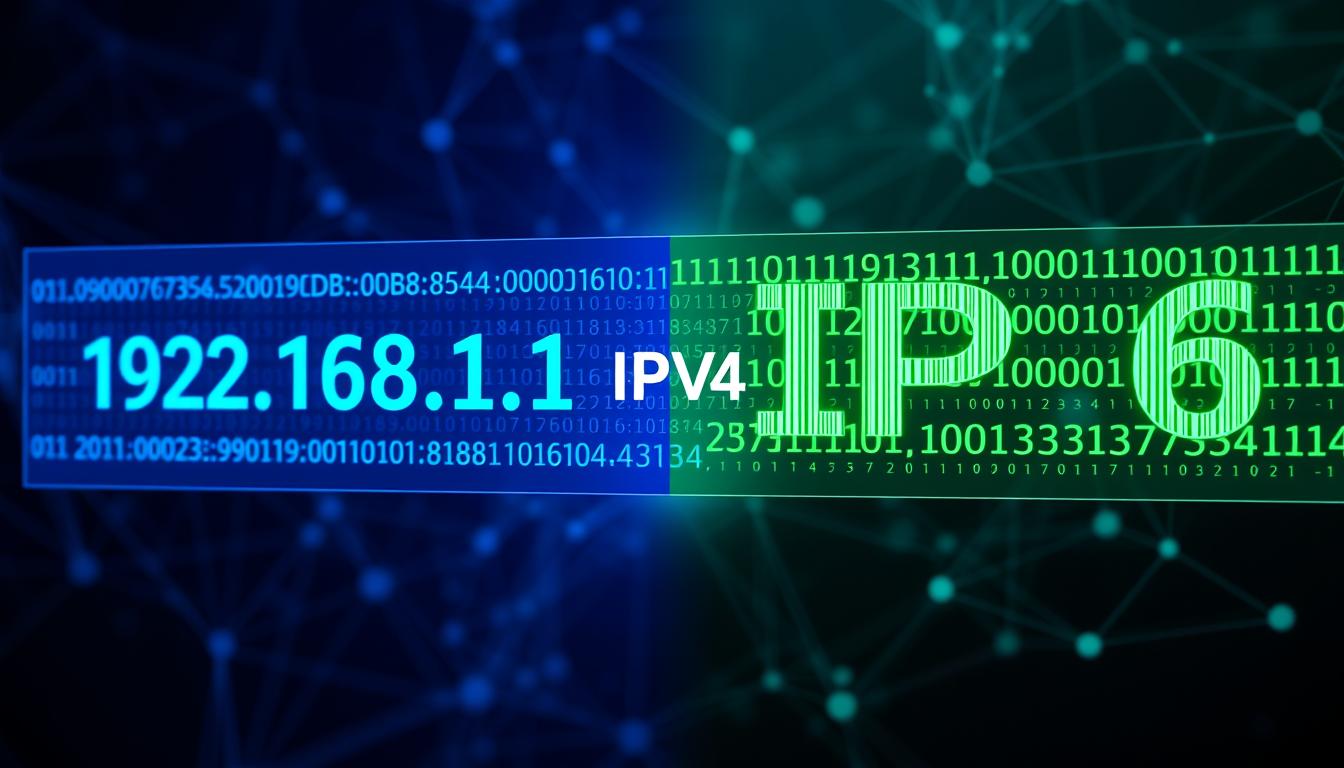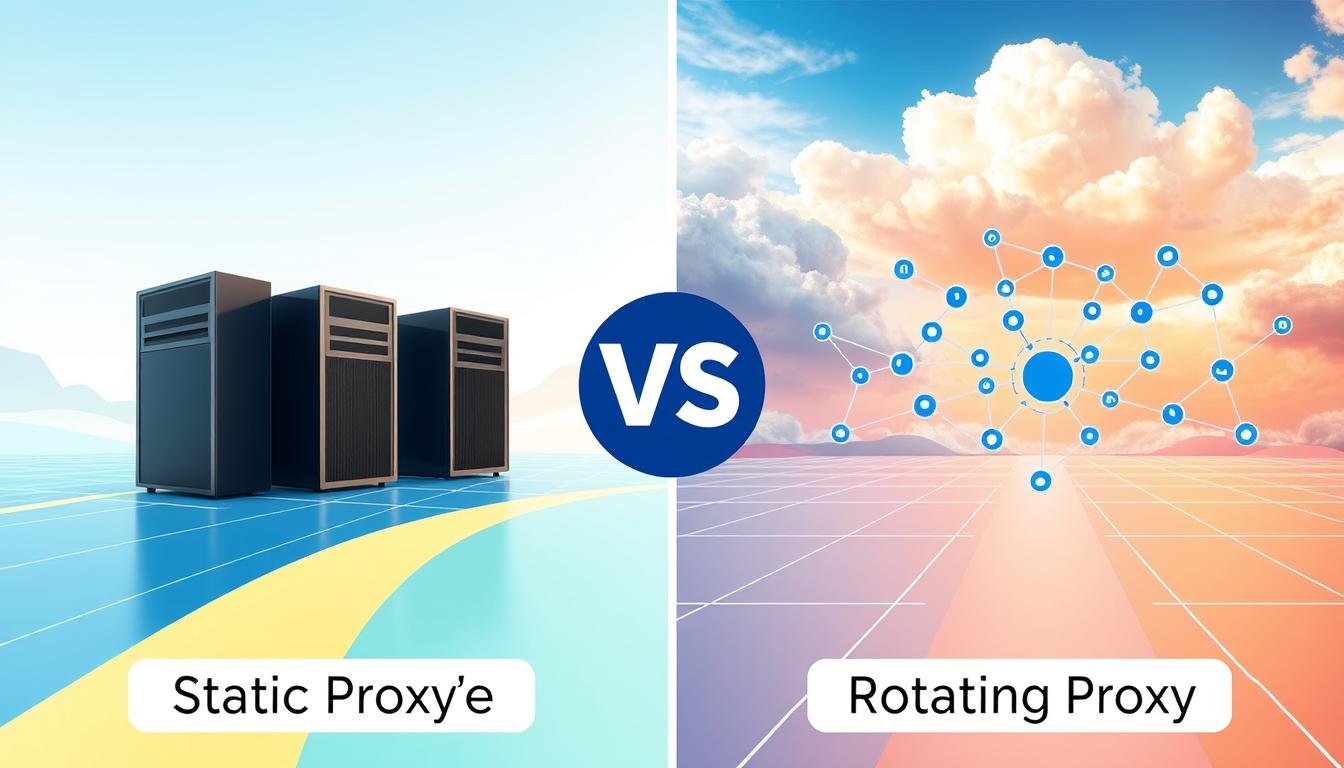FTC disclaimer: This post contains affiliate links and I will be compensated if you make a purchase after clicking on my link.
Imagine a single business operation sending over 15,000 requests across the web in a single benchmark test. That’s the scale of analysis behind this guide, revealing which services truly deliver on their promises.
You need reliable tools to power your online activities, from gathering market data to accessing global content. This is where a robust datacenter proxy provider becomes essential for efficiency and success.
Our research cuts through the noise. We compared leading services on speed, uptime, and cost. This list includes giants like Bright Data and Oxylabs, alongside agile options like IPRoyal and Webshare.
You will learn the key differences between shared and private datacenter proxies. Understanding these options helps you choose the right solution for your specific volume and performance needs.
Your search for a trustworthy and effective solution ends here. We provide clear, tested data to simplify your decision-making process.
Key Takeaways
- This guide is based on extensive testing of over 15,000 requests for accuracy.
- Datacenter proxies offer a cost-effective solution for high-volume tasks.
- There is a clear distinction between shared and private proxy types.
- Top-tier providers balance speed, reliability, and affordability.
- The selection includes both industry leaders and emerging companies.
- Our analysis covers critical factors like IP pool size and geographic coverage.
- You can find options tailored for both small teams and large enterprises.
Introduction to Datacenter Proxies
At the core of many large-scale online operations lies a powerful, yet often misunderstood, tool. This section breaks down the fundamentals to give you a clear starting point.
What Are Datacenter Proxies?
Simply put, a datacenter proxy is an IP address that comes from a secondary corporation’s server, not from a home internet provider. It acts as a middleman for your web traffic.

These IPs are not linked to an Internet Service Provider (ISP). This fundamental difference is what defines them. They originate from powerful corporate infrastructure.
Key Benefits for Your Business
Your business gains significant advantages by using these tools. They are much more affordable than residential alternatives. This makes them ideal for tasks requiring many connections.
You also get consistent speed and reliable performance. The infrastructure in a professional facility is built for stability. This leads to lower latency and predictable results for your data projects.
Common uses include web scraping, market research, and ad verification. You can choose shared options for cost efficiency or private IPs for exclusive performance. This flexibility supports various operational scales.
Understanding Their Role in Online Strategy
Modern businesses rely on efficient data extraction methods to stay competitive in their markets. Your strategic approach to online operations must include tools that enable seamless information gathering.

Enhancing Web Scraping and Data Collection
Your web scraping efforts become more effective with the right infrastructure. These tools allow you to gather information from multiple sources simultaneously. You can monitor competitor pricing and market trends in real-time.
Large platforms like Google and Amazon implement strict limits on requests. After 2,000-3,000 requests from one location, blocking mechanisms activate. Distributing your requests across different IP addresses prevents detection.
Your data collection strategy benefits from automated IP rotation. This maintains continuous operation without triggering security measures. You gain access to valuable business intelligence for informed decisions.
These solutions also handle load balancing and content filtering. They cache frequently accessed resources to improve performance. Your operations run smoothly with reliable access to target websites.
How We Benchmarked Proxy Providers
Our commitment to accuracy required a rigorous testing process to evaluate service quality. You need data that reflects real-world use, not just ideal lab conditions.

Testing Methodology and Success Metrics
We simulated your business tasks across major platforms like Google, Amazon, and Instagram. Every 15 minutes, we sent identical requests to all services using the same technical settings.
A successful request had to return a valid status code and the full desktop page content. It also had to avoid CAPTCHA challenges or traffic blocks. This ensures we measured usable performance.
Performance, Speed, and Reliability Insights
We tracked two main metrics for each provider. The Success Rate shows the percentage of requests that completed successfully. The Average Response Time measures how quickly the server returned data.
We also analyzed latency variability to understand consistency. This tells you if a service is fast only sometimes or reliably quick.
| Metric | Definition | Why It Matters to You |
|---|---|---|
| Success Rate (%) | The percentage of requests that complete without errors or blocks. | Indicates reliability for uninterrupted data collection. |
| Average Response Time (s) | The mean time for a server to respond to a request. | Directly impacts the speed of your operations. |
| P50/P95 Latency | Shows response time consistency (50th and 95th percentiles). | Helps you predict performance under different loads. |
Evaluating the Best Datacenter Proxy Providers
Effective decision-making for your technical infrastructure depends on understanding the key differentiators between available options. Your choice directly impacts operational efficiency and data collection success.

Selection Criteria and Key Features
Your evaluation should begin with performance metrics. Look for services with response times under two seconds. Speed directly affects your scraping efficiency and data throughput.
Geographic coverage is another critical factor. Services offering city-level or ASN-level targeting provide precise location control. This feature ensures accurate data collection from specific regions.
Examine pricing transparency carefully. Avoid vague “unlimited” claims and seek clear per-GB or per-IP plans. This approach helps you budget accurately without unexpected costs.
The size and diversity of the IP pool matter greatly. Larger pools with distributed ips reduce blocking risks. Diverse ips across multiple subnets improve success rates.
Bandwidth allocation and limitations require careful assessment. Ensure sufficient bandwidth for your operations without restrictive policies. Adequate bandwidth prevents project disruptions.
Customer support quality is essential. Look for 24/7 assistance and comprehensive documentation. Responsive technical support resolves issues quickly.
Always test services through trials before committing. Real-world performance often differs from marketing claims. Testing helps you avoid poor-performing options.
Provider Spotlight: NetNut
For organizations requiring scalable data collection capabilities, NetNut presents a comprehensive solution worth examining. This service operates an extensive network with specialized infrastructure.
Unique Features and IP Rotation
Your operations benefit from NetNut’s impressive pool of over 150,000 dedicated datacenter IPs. These cover both static and rotating proxies primarily in the US and India.
The automatic IP rotation system switches addresses with each request. This significantly reduces the risk of blocks and rate limiting on target websites. You get maximum anonymity for your scraping activities.
NetNut supports SOCKS5 protocol alongside standard HTTP/HTTPS. This provides greater flexibility for various applications. The service offers exceptional geo-targeting across 50+ countries.
Pricing and Plan Options
Your budget considerations should note that pricing starts at $100 for a 100GB plan. This equals $1 per GB, with costs decreasing for larger packages.
There is no pay-as-you-go option available. The service is better suited for medium to large-scale operations. Smaller businesses might find the entry point too high.
You can test the service through their free trial for new users. This allows verification of performance before committing to monthly plans.
Provider Spotlight: Oxylabs
When global reach matters for your operations, Oxylabs delivers extensive infrastructure. Their network spans an impressive scale across international borders.
Global Coverage and Geo-Targeting
You gain access to over 175 million IP addresses covering 195 countries worldwide. This massive infrastructure supports precise location targeting for your projects.
Their shared datacenter proxies operate from 24 countries with country-level targeting. For more specific needs, dedicated options from 8 countries offer city and state-level precision.
Dedicated and Shared Proxies Explained
Your choice depends on performance requirements. Semi-dedicated proxies serve up to three users with over 2 million IPs available. These offer unlimited bandwidth under fair usage.
Traffic-based shared proxies provide cost-effective access to a pool of 40,000 IPs. Both options support HTTP(S) and SOCKS5 protocols for flexible integration.
You can maintain consistent IP addresses or rotate with each request. This flexibility helps balance anonymity needs with session consistency.
A 5GB starter plan from the U.S. lets you test shared services before committing. This approach ensures the solution fits your operational scale.
Provider Spotlight: Bright Data (Luminati)
For businesses seeking comprehensive data gathering capabilities, Bright Data offers a sophisticated platform. Their infrastructure supports various operational scales with specialized solutions.
Proxy Types and Data Extraction Benefits
You can choose from three main proxy types to match your specific needs. The shared pay-per-GB option provides access to 40,000 rotating IPs. This flexibility makes it cost-effective for variable workloads.
The shared unlimited plan offers fixed IPs charged per proxy. For high-volume operations, dedicated unlimited proxies provide exclusive IP access. All options support country-level targeting across 98 countries.
| Proxy Type | IP Access | Pricing Model | Best Use Cases |
|---|---|---|---|
| Shared Pay-per-GB | 40,000 rotating IPs | Bandwidth consumption | Variable scraping workloads |
| Shared Unlimited | Fixed IP set | Per proxy charge | Consistent data collection |
| Dedicated Unlimited | Exclusive IP access | Unlimited usage | High-volume operations |
Plan Flexibility and Advanced Tools
Your budget considerations are supported by Bright Data’s deposit match offer up to $500. Each IP includes 100GB monthly fair usage allowance. Additional IP refreshes cost $0.02 per IP for shared options.
You can test their advanced tools through a three-day free trial. This trial has speed and bandwidth restrictions but allows meaningful evaluation. The platform’s extensive infrastructure includes over 770,000 IPs for reliable performance.
Provider Spotlight: SOAX
Among the established names in the proxy industry, SOAX stands out with its extensive global infrastructure. This veteran provider has built a reputation for reliable performance over many years of operation.
Your operations gain access to an impressive network of 191 million ethically sourced IP addresses. These cover 195+ countries worldwide, ensuring comprehensive geographic coverage.
Service Overview and Reliability
You benefit from highly customizable targeting options with SOAX. The service offers fast, stable static IPs that maintain session consistency. Automatic rotation switches addresses to avoid blocks during data collection.
The dual pricing model provides flexibility for different business needs. You can choose pay-as-you-go for occasional use or subscription plans for regular operations. Pricing starts at $49 for 80GB of bandwidth, scaling to $4,000 for 10,000GB.
SOAX also offers a web data extraction API built on their proxy infrastructure. This provides an alternative approach to traditional scraping methods. The API simplifies integration while maintaining reliability.
You should take advantage of their free trial to evaluate performance. This lets you test IP quality, rotation effectiveness, and overall service reliability before committing to a paid plan.
Provider Spotlight: Decodo (Smartproxy)
Streamlining your data collection workflow becomes simpler with Decodo’s browser-focused tools. This service offers both shared and dedicated options to match your operational scale.
Innovative Features and Browser Extensions
Your workflow benefits from Decodo’s extensive network of over 100,000 shared IP addresses. These cover popular regions across the US, Europe, and Asia-Pacific.
For exclusive needs, dedicated options provide 400,000 US-only IPs. Rotation occurs with each connection request for maximum anonymity.
Browser extensions for Chrome and Firefox enable seamless proxy switching. You can configure profiles and create rules without system modifications.
Helpful tools include a built-in proxy checker and the X Browser. These enhance anonymity and bypass geo-restrictions during web operations.
Comprehensive documentation with video tutorials simplifies integration. You can easily connect with popular data collection tools.
Cost-Effective Packages
Decodo offers flexible payment models to suit different budgets. Shared options start at just $3.5 monthly for 100 IPs.
Traffic-based plans begin at $30 for 50GB. This makes the service accessible for small teams and individual users.
| Plan Type | Entry Level | Mid Range | Enterprise Level |
|---|---|---|---|
| Shared per IP | $3.5/month (100 IPs) | $52.5/month (1500 IPs) | $105/month (4000 IPs) |
| Shared per traffic | $30/month (50GB) | $942/month (2000GB) | $1884/month (4000GB) |
| Dedicated IPs | $5.55/month (3 IPs) | $575/month (500 IPs) | $2300/month (2000 IPs) |
A three-day free trial with 100MB allows testing before commitment. Dedicated options start affordably at $5.55 monthly for three IPs.
Provider Spotlight: SquidProxies and IPRoyal
When affordability meets performance requirements, SquidProxies and IPRoyal present compelling options for different operational scales. These services cater to distinct needs while maintaining competitive pricing.
SquidProxies: Performance and Usage
Your experience with SquidProxies focuses on straightforward implementation. The service delivers consistent performance for standard web scraping tasks.
Private proxies provide stable connections across various target websites. This reliability makes the platform suitable for users who need dependable infrastructure without complex configurations.
IPRoyal: Geo-Targeting Capabilities and Pricing
Your geo-targeting needs find strong support with IPRoyal’s extensive network. The service offers state and city-level precision across popular global locations.
Pricing stands out as a major advantage at $1.57 per IP for 30-day plans. Committing to 90 days reduces the cost to $1.39 per IP. Each plan includes unlimited bandwidth but restricts targeting to one country.
You benefit from 99.9% uptime guarantees and support for HTTP(S) and SOCKS5 protocols. Convenient browser extensions facilitate seamless proxy management. The network spans over 34 million IPs across 40+ countries.
Provider Spotlight: Rayobyte
Your proxy strategy benefits from Rayobyte’s comprehensive approach to balancing static and rotating IP solutions. This service offers three distinct types to match your specific operational needs.
Static vs. Rotating Proxy Options
You can choose between static and rotating configurations based on your project requirements. Static options work best for tasks requiring longer sessions and consistent connections.
Dedicated datacenter proxies provide exclusive access to a single static IP. Semi-dedicated alternatives are shared among three to five users for cost efficiency.
Rotating proxies automatically switch IPs every 10 to 120 minutes. This feature makes them ideal for web scraping and data collection projects.
Speed and Uptime Metrics
Your performance expectations should focus on Rayobyte’s extensive infrastructure. The network boasts over 300,000 IPs across 20,000 subnets in 29 locations.
This diversity helps prevent bans and rate limiting from target websites. The service supports both HTTP(S) and SOCKS5 protocols for flexible integration.
You can test the service risk-free with a two-day money-back guarantee. This allows you to evaluate actual speed and reliability before committing.
Other Notable Providers to Consider
Your search for reliable infrastructure shouldn’t overlook the valuable options available from smaller, specialized providers. These services often deliver targeted solutions for specific operational needs.
MarsProxies and ProxyEmpire Overview
MarsProxies offers competitive pricing with straightforward solutions. This emerging service caters to users who need reliable performance without complex enterprise features.
ProxyEmpire provides quality IPs with flexible targeting options. Their unique approach supports various scraping and automation projects effectively.
Webshare, DataImpulse, and StormProxies Highlights
Webshare operates on tier-1 infrastructure with dedicated bandwidth reaching 100 Gbps. Their free plan includes 10 datacenter proxies, while paid options offer shared, private, and dedicated plans.
DataImpulse delivers granular targeting at state, city, ASN, and ZIP code levels. Their rotating IP pools span 194+ locations worldwide, supporting both HTTP(S) and SOCKS5 protocols.
StormProxies specializes in rotating proxies optimized for specific platforms. Consider this service for focused use cases that align with their specialized offerings.
| Provider | Key Features | Targeting | Trial Option | Best Use |
|---|---|---|---|---|
| MarsProxies | Competitive pricing, reliable performance | Standard country-level | Standard trial | Straightforward projects |
| ProxyEmpire | Quality IPs, flexible options | Multiple levels | Available | Various automation |
| Webshare | Tier-1 infrastructure, 100 Gbps | Location-based | Free 10 IP plan | High-volume scraping |
| DataImpulse | Granular targeting, 194+ locations | ZIP code level | $5 for 10GB | Precise geo-targeting |
| StormProxies | Platform-optimized rotation | Specialized | Custom options | Specific use cases |
Conclusion
Making the right choice for your web automation setup depends on matching provider capabilities to your project requirements. Your exploration of thirteen leading services reveals distinct advantages for different operational scales.
For large-scale automation, Bright Data stands out with its comprehensive infrastructure. Smaller teams benefit from Webshare’s affordable plans, while Oxylabs delivers enterprise-grade dedicated IPs.
Always prioritize three critical factors: price, speed, and reliability. Low-quality options lead to IP blocks that disrupt your web scraping operations. Most platforms implement blocking after 2,000-3,000 requests from single addresses.
Test services through free trials before committing. Real-world performance often differs from marketing claims. Your specific needs—whether for shared or dedicated access, geographic targeting, or bandwidth requirements—determine the optimal solution.
You can confidently select from these evaluated services, knowing each offers verified performance for sustained data collection from challenging websites.








